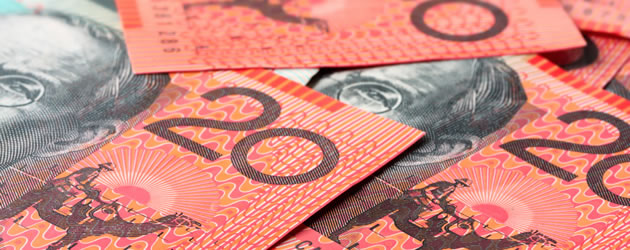UPDATE
The Euro to Australian Dollar (EUR/AUD) exchange rate softened by around -0.7% on Thursday morning.
Despite the fact that the US Dollar is holding a weak position as traders delay bets regarding the timing of a Federal Reserve rate hike, the shared currency softened versus many of its currency rivals. The depreciation can be linked to the Volkswagen scandal as it appears far more cars may have to be recalled than originally anticipated.
The Australian Dollar, meanwhile, strengthened versus its major peers after the Shanghai Composite Index recovered losses seen yesterday and posted a 2.3% gain as the Asian session closed. An unexpected contraction in Australian Employment Change wasn’t enough to prevent ‘Aussie’ (AUD) gains after positive results from Consumer Inflation Expectation and New Motor Vehicle Sales.
The Euro to Australian Dollar (EUR/AUD) exchange rate is currently trending in the region of 1.5569.
Yesterday…
EUR/AUD Conversion Rate Predicted to Decline despite Safe-Haven Demand
The Euro to Australian Dollar (EUR/AUD) exchange rate was trending within a limited range on Wednesday afternoon.
Despite the fact that the US Dollar softened in response to speculation of long-term delays to a Federal Reserve rate hike, the shared currency fluctuated versus many of its currency rivals. A lean towards depreciation can be linked to traders digesting yesterday’s disappointing German ZEW Economic Sentiment report and European stocks diving in response to China’s economic concerns. The common currency avoided a larger depreciation however, after the drop in the Shanghai Composite Index saw heightened demand for safe-haven assets.
Also weighing on demand for the common currency was Eurozone Industrial production which came in at 0.9% growth in August; only half the median market forecast 1.8% industrial output growth.
The Euro to Australian Dollar (EUR/AUD) exchange rate is currently trending in the region of 1.5762.
AUD/EUR Exchange Rate Predicted to Advance amid RBA Rate Cut Speculation
Many traders had dismissed the possibility that the Reserve Bank of Australia (RBA) would cut interest rates again this year because the housing bubble narrowed the tools available to the central bank. However, Westpac Banking Corp. announced that they plan to raise mortgage rates by 20 basis points which opens up the potential for the RBA to ease policy.
The Australian Dollar was able to trend higher despite the prospect of lower domestic borrowing costs as the prospect of a 2015 interest rate adjustment from the Federal Reserve remained in doubt.
Recent data continues to highlight economic troubles in the Far East. The relatively high value of the ‘Aussie’ (AUD) and weak demand from the world’s second largest economy has seen trade suffer considerably in the South Pacific nation. If the RBA cuts rates and the Australian Dollar softens, trade has the potential to pick up.
The Euro to Australian Dollar (EUR/AUD) exchange rate dropped to a low of 1.5670 during Wednesday’s European session.
Euro to Australian Dollar (EUR/AUD) Conversion Rate Forecast to Hold Losses ahead of Australian Labour Market Data
Although Eurozone Industrial Production and US Advance Retail Sales have the potential to provoke changes for the Euro to Australian Dollar (EUR/AUD) exchange rate, the prospect of higher mortgage rates in Australia should see the South Pacific asset hold gains versus the common currency for the remainder of Wednesday’s European session.
Thursday’s Australasian session ought to see heightened EUR/AUD volatility, however, with Australian Employment Change and Unemployment Rate data due for publication. With a complete absence of significant European data on Thursday, the Euro is likely to respond to US Dollar positioning.
The Euro to Australian Dollar (EUR/AUD) exchange rate climbed to a high of 1.5822 during Wednesday’s European session.



